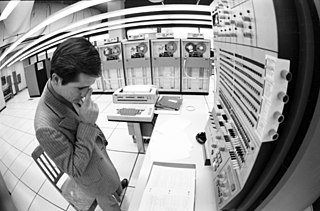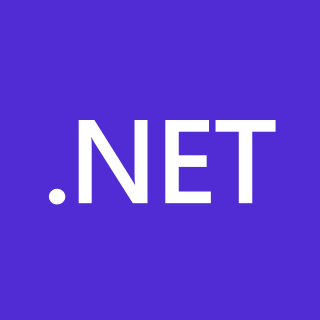Related Research Articles

Bruce Perens is an American computer programmer and advocate in the free software movement. He created The Open Source Definition and published the first formal announcement and manifesto of open source. He co-founded the Open Source Initiative (OSI) with Eric S. Raymond. Today, he is a partner at OSS Capital.
Borland Software Corporation was a computer technology company founded in 1983 by Niels Jensen, Ole Henriksen, Mogens Glad and Philippe Kahn. Its main business was the development and sale of software development and software deployment products. Borland was first headquartered in Scotts Valley, California, then in Cupertino, California and then in Austin, Texas. In 2009 the company became a full subsidiary of the British firm Micro Focus International plc.
An integrated development environment (IDE) is a software application that provides comprehensive facilities to computer programmers for software development. An IDE normally consists of at least a source code editor, build automation tools and a debugger. Some IDEs, such as NetBeans and Eclipse, contain the necessary compiler, interpreter, or both; others, such as SharpDevelop and Lazarus, do not.

Miguel de Icaza is a Mexican-American programmer, best known for starting the GNOME, Mono, and Xamarin projects.
Microsoft Developer Network (MSDN) was the division of Microsoft responsible for managing the firm's relationship with developers and testers, such as hardware developers interested in the operating system (OS), and software developers developing on the various OS platforms or using the API or scripting languages of Microsoft's applications. The relationship management is situated in assorted media: web sites, newsletters, developer conferences, trade media, blogs and DVD distribution.
A cross compiler is a compiler capable of creating executable code for a platform other than the one on which the compiler is running. For example, a compiler that runs on a PC but generates code that runs on an Android smartphone is a cross compiler.

GForge is a commercial service originally based on the Alexandria software behind SourceForge, a web-based project management and collaboration system which was licensed under the GPL. Open source versions of the GForge code were released from 2002 to 2009, at which point the company behind GForge focused on their proprietary service offering which provides project hosting, version control, code reviews, ticketing, release management, continuous integration and messaging. The FusionForge project emerged in 2009 to pull together open-source development efforts from the variety of software forks which had sprung up.

The original Visual Basic is a third-generation event-driven programming language from Microsoft known for its Component Object Model (COM) programming model first released in 1991 and declared legacy during 2008. Microsoft intended Visual Basic to be relatively easy to learn and use. Visual Basic was derived from BASIC and enables the rapid application development (RAD) of graphical user interface (GUI) applications, access to databases using Data Access Objects, Remote Data Objects, or ActiveX Data Objects, and creation of ActiveX controls and objects.

In the 1950s and 1960s, computer operating software and compilers were delivered as a part of hardware purchases without separate fees. At the time, source code, the human-readable form of software, was generally distributed with the software providing the ability to fix bugs or add new functions. Universities were early adopters of computing technology. Many of the modifications developed by universities were openly shared, in keeping with the academic principles of sharing knowledge, and organizations sprung up to facilitate sharing. As large-scale operating systems matured, fewer organizations allowed modifications to the operating software, and eventually such operating systems were closed to modification. However, utilities and other added-function applications are still shared and new organizations have been formed to promote the sharing of software.

MonoDevelop is an open-source integrated development environment for Linux, macOS, and Windows. Its primary focus is development of projects that use Mono and .NET Framework. MonoDevelop integrates features similar to those of NetBeans and Microsoft Visual Studio, such as automatic code completion, source control, a graphical user interface (GUI) and Web designer. MonoDevelop integrates a Gtk# GUI designer called Stetic. It supports Boo, C, C++, C#, CIL, D, F#, Java, Oxygene, Vala, JavaScript, TypeScript and Visual Basic.NET.

Microsoft Visual Studio is an integrated development environment (IDE) from Microsoft. It is used to develop computer programs, as well as websites, web apps, web services and mobile apps. Visual Studio uses Microsoft software development platforms such as Windows API, Windows Forms, Windows Presentation Foundation, Windows Store and Microsoft Silverlight. It can produce both native code and managed code.

Redgate Software is a software company based in Cambridge, England. It develops tools for developers and data professionals and maintains community websites such as SQL Server Central and Simple Talk.

The .NET Framework is a proprietary software framework developed by Microsoft that runs primarily on Microsoft Windows. It was the predominant implementation of the Common Language Infrastructure (CLI) until being superseded by the cross-platform .NET project. It includes a large class library called Framework Class Library (FCL) and provides language interoperability across several programming languages. Programs written for .NET Framework execute in a software environment named the Common Language Runtime (CLR). The CLR is an application virtual machine that provides services such as security, memory management, and exception handling. As such, computer code written using .NET Framework is called "managed code". FCL and CLR together constitute the .NET Framework.

Xamarin is a Microsoft-owned San Francisco-based software company founded in May 2011 by the engineers that created Mono, Xamarin.Android and Xamarin.iOS, which are cross-platform implementations of the Common Language Infrastructure (CLI) and Common Language Specifications.
.NET Compiler Platform, also known by its codename Roslyn, is a set of open-source compilers and code analysis APIs for C# and Visual Basic (VB.NET) languages from Microsoft.

Mono is a free and open-source .NET Framework-compatible software framework. Originally by Ximian, it was later acquired by Novell, and is now being led by Xamarin, a subsidiary of Microsoft and the .NET Foundation. Mono can be run on many software systems.
Microsoft .NET Gadgeteer is an open-source rapid-prototyping standard for building small electronic devices using the Microsoft .NET Micro Framework and Microsoft Visual Studio/Visual C# Express.
Bill Wagner is an American software developer, known as an expert in the C# programming language.
Universal Windows Platform (UWP) is a computing platform created by Microsoft and first introduced in Windows 10. The purpose of this platform is to help develop universal apps that run on Windows 10, Windows 10 Mobile, Windows 11, Xbox One, Xbox Series X/S and HoloLens without the need to be rewritten for each. It supports Windows app development using C++, C#, VB.NET, and XAML. The API is implemented in C++, and supported in C++, VB.NET, C#, F# and JavaScript. Designed as an extension to the Windows Runtime (WinRT) platform first introduced in Windows Server 2012 and Windows 8, UWP allows developers to create apps that will potentially run on multiple types of devices.
Microsoft, a technology company historically known for its opposition to the open source software paradigm, turned to embrace the approach in the 2010s. From the 1970s through 2000s under CEOs Bill Gates and Steve Ballmer, Microsoft viewed the community creation and sharing of communal code, later to be known as free and open source software, as a threat to its business, and both executives spoke negatively against it. In the 2010s, as the industry turned towards cloud, embedded, and mobile computing—technologies powered by open source advances—CEO Satya Nadella led Microsoft towards open source adoption although Microsoft's traditional Windows business continued to grow throughout this period generating revenues of 26.8 billion in the third quarter of 2018, while Microsoft's Azure cloud revenues nearly doubled.
References
- ↑ "Contact Us". CODE. Retrieved 27 December 2015.
- ↑ http://www.worldcat.org/issn/1547-5166 [ bare URL ]
- ↑ "Home". xiine.com.